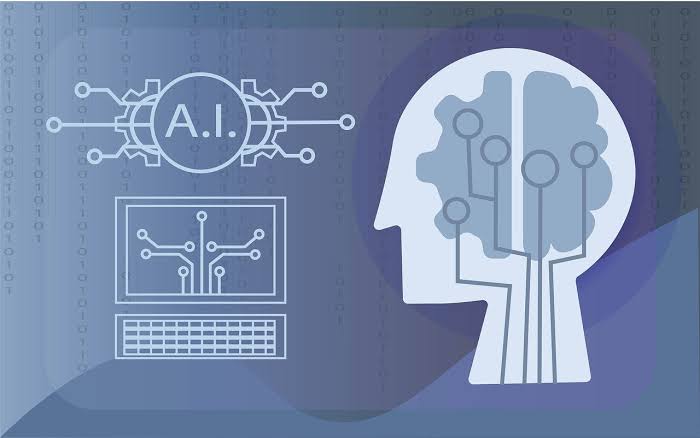Artificial intelligence has become ubiquitous across educational institutions and professional environments, with millions relying on tools like ChatGPT for daily tasks. Yet a groundbreaking MIT study released in June 2025 reveals concerning implications for human cognitive function that demand immediate attention. The research, conducted by Nataliya Kos’myna and her team monitored brain activity in real-time while participants used AI tools—and the results challenge fundamental assumptions about AI’s role in human development.
Hassan Taher, the Los Angeles-based AI expert and founder of Taher AI Solutions, has been analyzing these findings through the lens of responsible AI deployment. His extensive work on AI ethics, detailed in publications like “AI and Ethics: Navigating the Moral Maze,” provides crucial context for understanding what this research means for society’s relationship with artificial intelligence.
The MIT Experiment: Measuring Minds on AI
The four-month MIT study divided 54 undergraduate and graduate students into three distinct groups. One cohort used OpenAI’s ChatGPT-4o, another relied on search engines like Google Search, and the third—designated as the “brain-only” group—worked without external digital tools. Participants wrote essays while researchers monitored electrical activity across 32 brain regions using electroencephalography (EEG).
The methodology included a crucial twist: during a fourth session, groups switched tools, forcing ChatGPT users to write independently and allowing previously unaided writers to experiment with AI assistance. This design element proved essential for understanding AI’s lasting cognitive effects.
Human English teachers, natural language processing algorithms, and AI judges evaluated the essays. Researchers also conducted detailed interviews with participants about their writing experiences and sense of authorship.
The Cognitive Cost of Convenience
The ChatGPT group consistently demonstrated the lowest brain engagement and neural connectivity across all measures. Most striking was the memory deficit: 83% of ChatGPT users struggled to accurately quote from essays they had written minutes earlier, compared to just 11% in other groups. This finding suggests AI use creates “weaker memory traces” that persist beyond the immediate task.
Brain scans revealed that students working independently exhibited the strongest and most widespread neural activity. The Google Search group fell between the two extremes, indicating that traditional research tools maintain higher cognitive engagement than AI-powered assistance.
English teachers described ChatGPT-generated essays as “soulless,” lacking the individual voice and personal insights characteristic of human-authored work. Natural language processing analysis confirmed significant homogeneity in vocabulary and structure among AI-assisted essays, contrasting sharply with the diversity found in independently written work.
Students frequently reported uncertainty about whether AI-assisted work truly belonged to them, suggesting a mental disconnect between the writers and their content.
When Digital Tools Become Cognitive Crutches
The study illuminates a phenomenon researchers labeled “mental passivity”—the gradual disengagement from active thinking processes like brainstorming, content organization, and idea formulation. This cognitive offloading represents more than temporary convenience; it appears to create lasting changes in how brains process information.
Students relying heavily on AI demonstrated reduced capacity for critical analysis and creative problem-solving. They became less likely to question AI-generated responses, potentially creating what researchers describe as “AI-induced echo chambers” that reinforce misinformation or limited perspectives.
The dependency extends beyond writing tasks. Students reported declining confidence in basic skills like grammar and sentence construction, areas traditionally strengthened through practice and repetition. This “skill atrophy” suggests AI assistance may undermine foundational capabilities essential for independent thought.
The Double-Edged Nature of AI Enhancement
The MIT study revealed a crucial distinction in how AI affects cognition based on timing and context. Students who engaged in initial self-driven effort before using AI tools showed increased brain connectivity, suggesting that prior independent work provides protection against cognitive decline.
AI tools offer legitimate benefits when used strategically. They provide immediate feedback on grammar, syntax, and structure, potentially improving technical writing quality in the short term. For students with communication difficulties, these tools can overcome initial barriers and build confidence in expressing ideas.
The efficiency gains are undeniable. AI can automate lower-order writing tasks, theoretically freeing cognitive resources for higher-level thinking. However, the MIT findings suggest this theoretical benefit may not translate to practice without careful implementation.
Don’t Turn Off Your Brain: How to Use AI Responsibly
The research points toward specific strategies for maintaining cognitive skills while leveraging AI capabilities. The group that wrote with no digital tools and then switched to writing with an LLM showed higher brain activity than any other group using digital tools. This suggests that a “writing first, AI second” could be effective. Requiring students to engage in brainstorming, outlining, and original research before introducing AI assistance could help speed up processes without sacrificing mental engagement.
If you’re writing with AI, read everything and question everything. Rather than passively accepting generated content, evaluate the accuracy, relevance, and alignment with your original intentions. This critical engagement transforms AI into a collaborative partner.
Schools using AI should prioritize fundamental skill development first. Students need explicit instruction in core writing competencies—sentence construction, logical organization, and grammatical principles—independent of AI assistance. Teachers should alternate assignments with and without AI support to encourage both assisted and independent skill development.
The developmental stage matters critically. Younger learners face the highest risk from AI over-reliance, as their developing brains are most susceptible to cognitive changes. Educational approaches must account for these developmental differences, potentially limiting AI exposure during crucial formative periods.
Is ChatGPT Bad For Your Brain? It Doesn’t Have to Be
The MIT study represents early research in a rapidly changing field, but its implications demand immediate consideration. As AI tools become more sophisticated and pervasive, understanding their cognitive effects will prove crucial for preserving human intellectual capabilities while harnessing technological benefits. The challenge lies not in rejecting technological advancement, but in implementing AI with calculated trust and full awareness of its profound effects on human cognition and creativity.



































